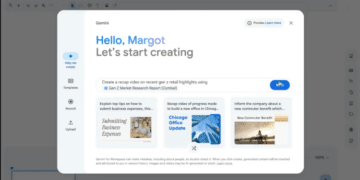Google has signed an agreement to buy nuclear power from multiple small modular reactors (SMRs) to be developed by Kairos Power. This move marked the world’s first corporate agreement to buy power from multiple SMRs.
Google said in a blog post that the initial phase of work is intended to bring Kairos Power’s first SMR online quickly and safely by 2030, followed by additional reactor deployments through 2035. The deal will enable up to 500 megawatts of new 24/7 carbon-free power to U.S. electricity grids, with plans to incorporate seven nuclear reactors.
According to the tech giant, this agreement is important for two reasons. First, it helps accelerate the adoption of new technology to meet energy needs cleanly and reliably and it unlocks the full potential of AI for everyone. Secondly, nuclear power offers a clean, round-the-clock energy source that can reliably meet electricity demands with carbon-free power every hour of the day. By advancing these solutions in close collaboration with supportive local communities, this partnership will help accelerate the decarbonisation of electricity grids globally.
“This agreement is part of our efforts to develop and commercialise a broad portfolio of advanced clean electricity technologies to power our global data centers and offices. This approach will complement our use of variable renewables, like solar and wind, and help us reach our ambitious 24/7 carbon-free energy and net-zero goals,” Google said in a blog post.
According to the US Department of Energy (DOE), nuclear power has the greatest economic impact of any power generation source, creating high-paying, long-term jobs. The agency estimates that reaching 200 gigawatts of advanced nuclear capacity in the U.S by 2050 will require an additional 375,000 workers.
Kairos Power’s small modular reactors use a molten-salt cooling system combined with ceramic pebble-type fuel, allowing for efficient heat transfer to steam turbines for power generation. This approach allows for safer and more cost-effective reactor designs, as lower-pressure operations simplify construction and deployment in various locations.
With this deal, Google aims to establish an ‘orderbook’ of reactors that will speed up the deployment and cut costs, eventually enabling the commercialisation of cutting-edge nuclear technology.
































